Search results for tag "Lecture" - 10 answer(s)
423
Vote
“A snake-catcher went to the mountains to catch a snake by his incantations…”. Using this tale recounted by the Persian mystical poet Rumi as a starting point, Leili Anvar introduces here the notion of imperious self.
The imperious self is a central concept in Ostad Elahi’s philosophy. It is this product of the human psyche against which we must relentlessly struggle in order to make spiritual progress, for it is the origin of those of our impulses that systematically and insidiously arise to contradict correct ethical thoughts.
Read more
1574
Vote
The principles of a correct education of thought are not matters of intellectual speculation: it is through practice that they bear fruit. But what does putting them into practice actually mean? Bahram Elahi answers this question by pointing out the dangers of overly abstract approaches to practice and self-transformation. It is not enough to consider the principles in theory, or even to self-suggest them daily with the best willpower in the world: in order to “concretely feel” them, we must pitch them against reality.
Read more
559
Vote
Nested in the cocoon of our ego like silkworms, we are unaware of what we really are. Bahram Elahi develops the metaphysical as well as ethical implications of this striking image. The reality of the self consists in a plurality of functions and levels of consciousness in dynamic interaction, as illustrated—in figures—by the polarity between “surface conscious self” and “deep conscious self” (“inner guide”). Some key-ideas to help us break the cocoon…
Read more
775
Vote
Natural spirituality gives a central role to reason, but it also recognises the full value of positive emotions in the process of perfection.
In this question and answer session concluding a lecture he gave at the Sorbonne (Paris) in November 2011, Professor Elahi discusses this subjective or lived dimension of self-knowledge. He touches upon the specific emotion that derives from our relationship to Truth and the divine, as well as the incomparable joy—at once powerful, light and profound— that comes with the understanding of real divine truths.
Read more
548
Vote
No one likes to think of themselves as dishonest. In fact, most of us don’t think they are. Yet who can assert that they have been fully righteous and honest in every situation they have encountered over the past month or year? How can this dichotomy be explained? What is it that pushes us to adopt dishonest behaviours and that shuts down our moral conscience when we do so?
In this insightful and thought provoking talk given at the RSA, Dan Ariely, best-selling author and professor of psychology and behavioural economics at Duke University, draws from experiments conducted among various groups of people in different parts of the world, as well as on personal experiences, to shed some light on these questions.
Read more
1354
Vote
As far as spirituality goes, a purely theoretical approach to principles, detached from actual practice, will not do. Not only is it inefficient, it constitutes a genuine impediment to spiritual progress: that of smugness or spiritual “superioritism”. Professor Bahram Elahi spells this out in the following excerpt from a lecture given at the Sorbonne (Paris) […]
Read more
1787
Vote
Ostad Elahi used to define his teachings as a new medicine of the soul: one that is adapted to the true nature of human beings and adheres to the law of causality governing both their spiritual and material lives. The spirituality he practiced was natural spirituality, and he viewed the process of spiritual perfection as a curriculum.
The excerpts presented here are drawn from a lecture given at the Sorbonne in March 2011, in which Professor Bahram Elahi revisits various aspects of Ostad Elahi’s philosophy. Rephrasing them in a simple and direct manner, he relates these points to fundamental questions and examines them from a rational standpoint.
Read more
705
Vote
Ostad Elahi delivered the main thrust of his conception of wisdom in a prayer entitled “The Quintessence of Religions”. Leili Anvar chose this angle to shed some light in a concrete and personal way on some of the subtlest aspects of this thought which, while taking root in the mystical tradition, reverses the prevailing trend by replacing reason at its rightful place in the process of spiritual perfection. The question of evil, the meaning of true ethics and true humanness and the importance of faith are among the themes dealt with in this analysis.
Leili Anvar is Lecturer in Persian Literature at the Institut national des langues et civilisations orientales in Paris and a specialist in mystic poetry. This lecture was given on 10 September 2011 as part of a symposium organised by the Fondation Ostad Elahi around the question “What wisdom for our times?”.
Read more
1565
Vote
Ostad Elahi used to define his teachings as a new medicine of the soul: one that is adapted to the true nature of human beings and adheres to the law of causality governing both their spiritual and material lives. The spirituality he practiced was natural spirituality, and he considered the process of spiritual perfection to resemble an academic curriculum.
The excerpts presented here are drawn from a lecture given at the Sorbonne in March 2011, in which Professor Bahram Elahi revisits various aspects of Ostad Elahi’s philosophy. Rephrasing them in a simple and direct manner, he relates these points to fundamental questions and examines them from a rational standpoint.
Read more
1428
Vote
Ostad Elahi used to define his teachings as a new medicine of the soul: one that is adapted to the true nature of human beings and adheres to the law of causality governing both their spiritual and material lives. The spirituality he practiced was natural spirituality, and he considered the process of spiritual perfection to resemble an academic curriculum.
The excerpts presented here are drawn from a lecture given at the Sorbonne in March 2011, in which Professor Bahram Elahi revisits various aspects of Ostad Elahi’s philosophy. Rephrasing them in a simple and direct manner, he relates these points to fundamental questions and identifies how they are justified from a rational standpoint.
Read more
Next »
|

 News
News Podcast
Podcast

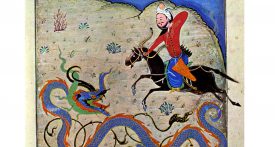
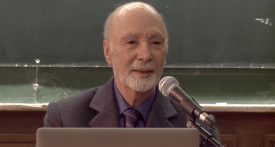
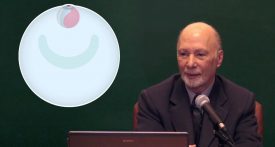
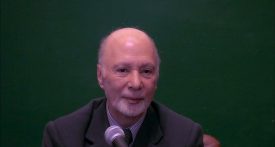
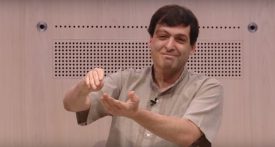
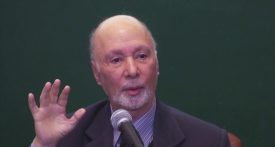
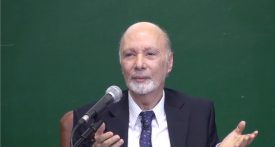
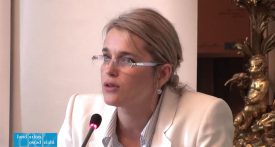
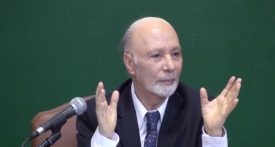
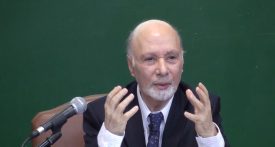


Recent Comments